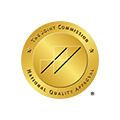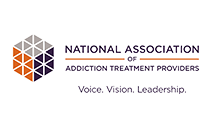Drug and Alcohol Treatment in New Jersey
Intensive Outpatient Program
Individual Therapy
Weekly one-on-one sessions with a licensed therapist
Intensive Structure
Structured treatment programs during the day, providing a supportive environment similar to inpatient care but allowing individuals more flexibility in the evenings.
Holistic Approach
Holistic therapies such as yoga, mindfulness meditation, art therapy, and recreational activities to promote overall well-being and address the mind-body connection.

Group Therapy
Tailored to address addiction and underlying mental health issues.
Medical Supervision
Staffed with medical professionals who monitor individuals' health and manage medications to address withdrawal symptoms or co-occurring medical conditions.
Transition Support
Assist individuals in transitioning to lower levels of care or outpatient treatment, providing aftercare planning and ongoing support to maintain sobriety and prevent relapse.
What Is An Intensive Outpatient Program?
An Overview of IOP
Drug and alcohol addiction is still a significant problem in the US. If you find yourself dealing with addiction issues, you need to understand your options are going to be limited. You can choose to keep treading water in the cycle of addiction, or you come to grips with the fact you have a disease and seek help. When you are ready to seek help, you’ll be glad to learn addiction treatment facilities like ours will work hard to develop a treatment plan that will meet your specific needs. If your addiction is significant, you would probably need to spend time in a residential treatment center where you can get round the clock care. If for any reason residential care is too restrictive, you might be able to get the recovery you need from an outpatient treatment program.
About Outpatient Treatment
Top rehab facilities like ours realize clients are unique individuals with unique circumstances. That’s why so many of us offer outpatient care options. Generally, there are three levels of outpatient care. All three of them fall under the ASAM guidelines that administrators use to develop addiction treatment programs. The three basic outpatient offerings include:
• Partial Hospitalization (PHP)
• Intensive Outpatient (IOP)
• General Outpatient (OP)
The primary thing that differentiates these three outpatient options is the amount of time clients have to devote to treatment. As a point of reference, partial hospitalization is by far the most restrictive outpatient treatment option. In some cases, clients will have to report for treatment every day of the week. This will continue until a specific client’s therapist feels the client is in recovery. After partial hospitalization, intensive outpatient care would be the next most restrictive treatment option. At this point, we would like to go into more depth about intensive outpatient treatment.
About Intensive Outpatient Treatment
If a client gets placement in an intensive outpatient program, they can expect to spend three to five days a week in the addiction treatment facility. Each day, they will typically undergo intensive one on one therapy for approximately four to six hours a day. Under most circumstances, intensive outpatient programs are going to continue for two to three months, depending on each client’s progress. The primary objective of individual therapy is to help clients gain a thorough understanding of the root causes of their addictions. It’s kind of a journey of self-discovery. If clients can learn to identify the issues that drive them to abuse drugs or alcohol, they can begin developing the coping and life skills they will need to combat their issues in the future. By the way, some therapists will have their clients attend group therapy sessions. In group therapy, clients get the opportunity to work with other clients and therapists to build support resources.
While going through an intensive outpatient program, clients need to follow rules and make good progress. If they can do that, they might get relegated down a notch to a less restrictive standard outpatient program. If progress is slow, clients might have to move up the ASAM treatment scale to partial hospitalization or even residential care. Knowing we can work with you to develop a custom treatment plan, we hope this motivates you to seek help. If you are ready, you should give us a call and lets us get you started towards the road to recovery.
- Individual Counseling
- Group Therapy
- Medical Supervision
- Skill Building
- Holistic Approach
- Transition Support
Most Major Health Insurance Accepted
We work with most major health insurance carriers. Often times insurance can cover up to 100% of your treatment costs. Contact us today to get started. Verification of benefits can be done right away. Don’t worry if you don’t see your health insurance listed here. We can help with many different plans.
- BCBS
- Aetna
- Anthem
- Tricare
Today Is The Day
You Never Have To Feel This Way Ever Again
One simple call to our caring and compassionate staff, and you can be on your way to a lifetime of freedom and recovery

As Seen On Hulu
Seacrest Recovery Center is The Featured Drug & Alcohol Rehab on Jelly Roll's Save Me Documentary on Hulu Originals
Trusted Treatment Provider
Certified and Accredited Both Locally and Nationwide



Our Clients Believe In Us
And We Believe In Them!
Here Is What They Are Saying
About Seacrest Recovery
Your First Step To Recovery
Our Locations

Columbus OH

Eatontown NJ

Willard OH

Cincinnati OH
More About An Intensive Outpatient Program?
Intensive Outpatient Program
Living with an addiction is one of the most difficult things a person can try to endure. Why? Drugs and alcohol in the wrong hands can drain the life out of someone. For that reason, addiction treatment facilities like ours do all we can to make sure we have very specific treatment options for any addiction sufferer who is ready to seek help. If someone has a significant addiction issue, inpatient or residential care would be the preferred option. The addiction sufferer benefits greatly by living in a sober world while they work towards recovering from their addiction illness. With that said, not all prospective clients can or will submit to residential treatment. Why? The restrictiveness of living in a rehab facility could materially interfere with some aspect of the individual’s life, If they are distracted by concerns over what’s going on in their home environment, it could interfere with their ability to focus on treatment during residential care. The solution: we like to make outpatient options available as an alternative treatment option. By offering outpatient care, we give clients the treatment they need while permitting them to continue attending to their everyday lives. Of course, outpatient treatment requires a certain amount of discipline on the part of the client. They have to be willing to follow very strict guidelines. That would include showing for all appointments on time, acting responsibly towards remaining substance-free, and fully committing to the requirements laid down by their therapist. If a client can do these things in earnest, there is a good chance outpatient care would suffice. As for outpatient care, there are three primary levels of care, distinguished primarily by the amount of time a client would spend in treatment at the rehab facility. At the most restrictive level, we offer partial hospitalization (5 to 7 days a week, 6 to 8 hours a day). At the next level down, we offer intensive outpatient care (3 to 5 days a week, 4 to 6 hours a day}. Finally, our standard outpatient programs generally require clients to report for therapy no more than a couple of days a week for maybe an hour or two per session. In all cases, clients need to show progress. Good progress is often rewarded with fewer restrictions while poor progress is often met with more restrictions, including and up to a recommended move into residential care. For a moment, we want to focus on intensive outpatient care. With this option, we require clients to spend the majority of their treatment time working with a therapist in one on one therapy. The goal of therapy is very clear: clients need insight into the nature of their addiction issues. They need an understanding of what’s happening within their minds and lives that lead them to try to self-medicate away their problems. The intensity of the therapy is from where the term intensive outpatient care derives. If a client can learn the truth about their addiction, they can also learn the appropriate coping skills they will need to combat temptation and the triggers that create within them the need to use drugs/alcohol. Clients can learn the coping skills they need through discussion or by completing projects. Every task one of our therapist assigns is intended to teach the client how to deal with certain aspects of their life. Recovery becomes a reality when a client feels empowered to leave treatment with a better sense of self and the ability to live life on life’s terms without relapsing. After completing an intensive outpatient care program, a client will be eligible to fine-tune their recovery with some basic outpatient care. Recovery is a lifelong endeavor that demands a constant commitment to staying sober.
- Individual Counseling
- Group Therapy
- Medical Supervision
- Skill Building
- Holistic Approach
- Transition Support
Most Major Health Insurance Accepted
We work with most major health insurance carriers. Often times insurance can cover up to 100% of your treatment costs. Contact us today to get started. Verification of benefits can be done right away. Don’t worry if you don’t see your health insurance listed here. We can help with many different plans.
- BCBS
- Aetna
- Anthem
- Tricare
